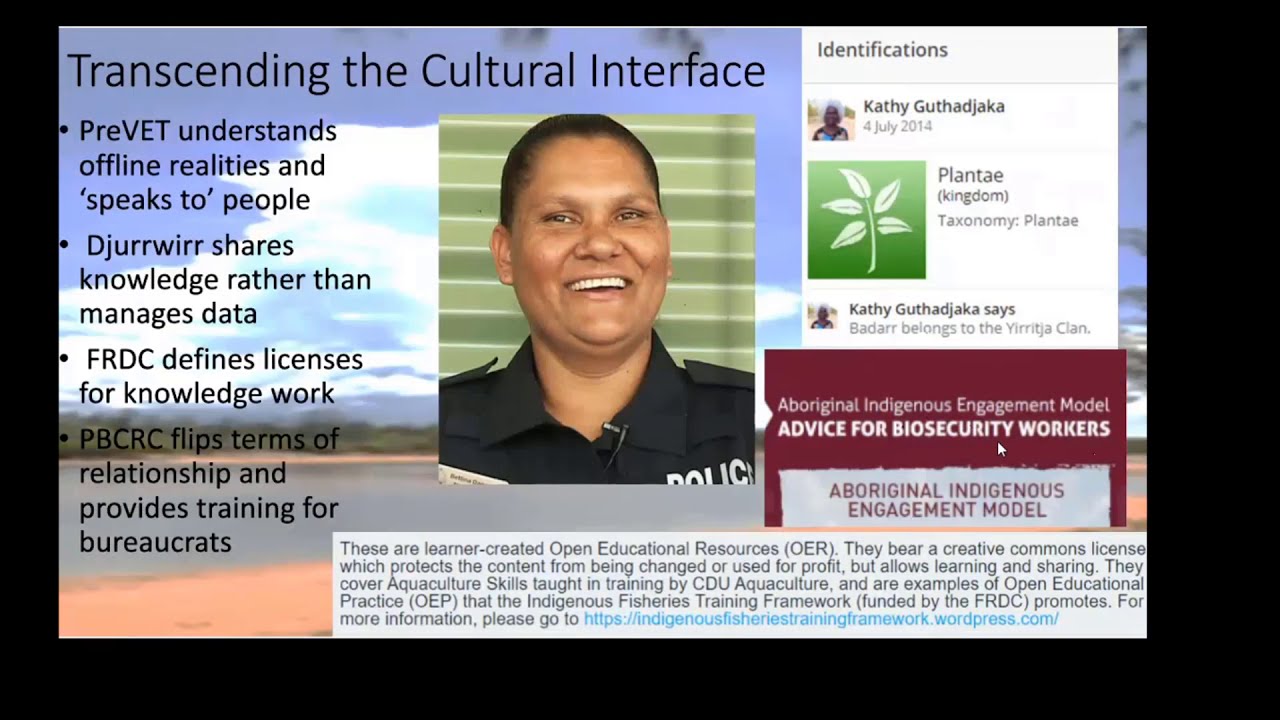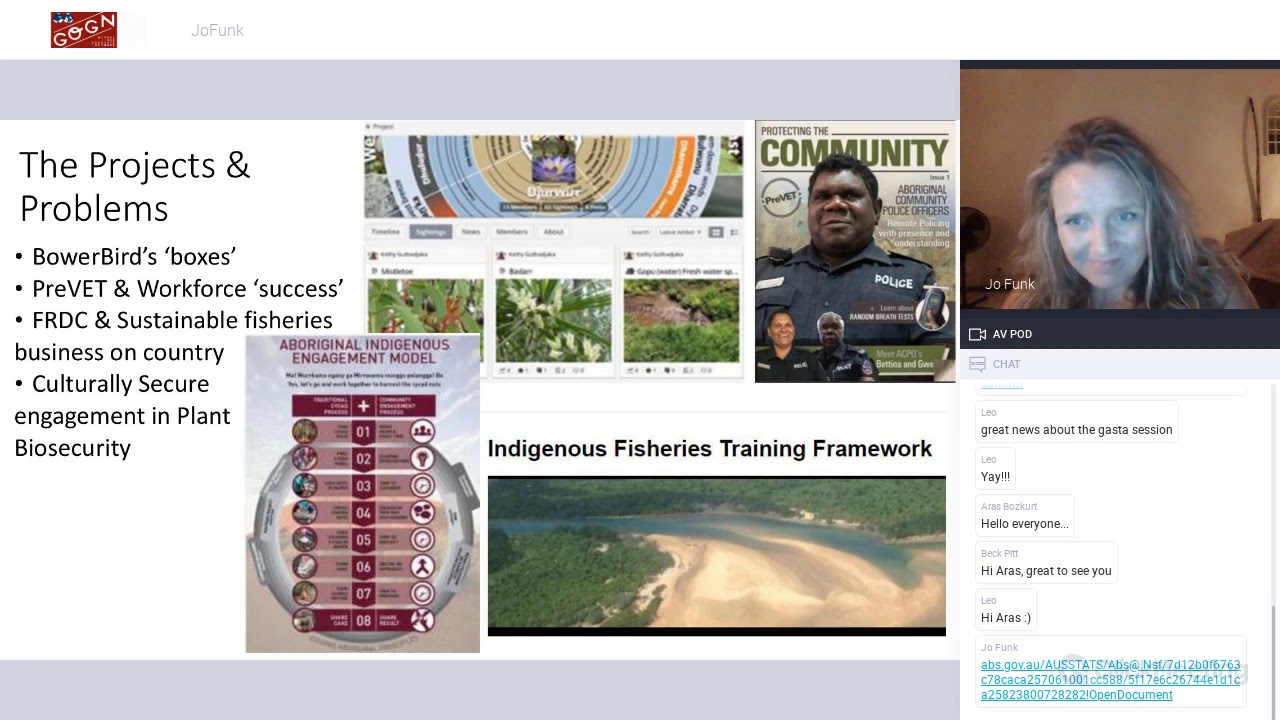Author: Johanna Funk
Institution: Northern Institute
Country: Australia
Topic: Global Collaboration, Strategies, & Policies in Open Education
Sector: Higher Education
UNESCO Area of Focus: Facilitating int cooperation
Session Format: Presentation
Abstract
Public institutions are consistently challenged to appropriately include diverse populations, knowledges, and cultures. Public policy sectors can reconcile some of these challenges and support increasingly complex social needs through creative technology design and use. Therefore, improving how technologies are used to connect people with knowledge sharing can help us navigate our complex world and better learn from excluded peoples and knowledges. This presentation discusses a study which examined four online resources in multidisciplinary contexts and how they performed as open education practices (OEP). I interrogated the different knowledge practices the resources encourage and how they count towards defining a functionally successful ‘openness’ to learners’ knowledge backgrounds. I focused on Indigenous public policy resources and explored ways institutions can develop better relationships with learners and knowledge holders and how they value knowledges via OEP. In culturally distinct situations where knowledge is shared differently, western notions of openness require adapting. My research questions were: How do we make OEP more functionally successful for diverse learners? What is ‘open’ about these resources and practices? How are OEP used in these contexts? What are successful outcomes for these OEP, who defines this and what matters? I addressed the first question via development of a theoretical framework including Knowledge Authority (Christie & Verran, 2013; Douglas, 2015), Culturally invasive practices (Freire 1970), Validity claims and Communicative action (Habermas 1987), context embedded language use (Cummins 1996, 2000), Situated Communities of Practice (COP), Learning On Country (LOC) & 21st Century Competence (Lave & Wenger 1991; Fogarty 2010; Lee 2013; Country et al 2015) and the Cultural Interface in the Digital Public Sphere (Habermas 1989; Moore 1993; Nakata 2007). These theoretical elements then informed a set of criteria and selection from existing frameworks with which to evaluate the resources. I examined how the resources met three sets of criteria to understand how they acknowledged and represented knowledges. The study developed several principles for OEP guided by three broad theory statements prior to program design: the ways we use languages needs deeper understanding; contextualising resources connects knowledge management to local realities on multiple levels; and particular ways to use technology can support knowledge sovereignty. I hope that by experimenting with theory statements such as these, we can continue improving engagement between knowledge systems, cultures and sectors via OEP.Keywords
intercultural education, open educational practice, Indigenous Knowledges
**The presentation was pre-recorded and is available here**



